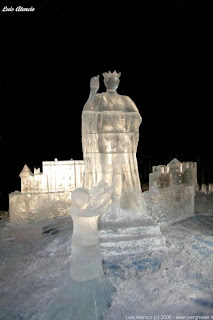"Golden Bough"
SOLID
-"It was they, as he now believed, and not he himself, who made the stormy wind to blow, the lightning to flash, and the thunder to roll; who had laid the foundations of the solid earth and set bounds to the restless sea that it might not pass..."
-"but we do not know in what manner its members exercised a useful function, which probably earned for them a more solid recompense than mere repute among the seafaring population of the isthmus."
-"being hidebound by the trammels of a pedantic logic. In attempting to track his devious thought through the jungle of crass ignorance and blind fear, we must always remember that we are treading enchanted ground, and must beware of taking for solid realities the cloudy shapes that cross our path or hover and gibber at us through the gloom."
-"They too, like so much that to common eyes seems solid, may melt into air, into thin air."
-"On the one hand, the people have to thank him for the rain and sunshine which foster the fruits of the earth, for the wind which brings ships to their coasts, and even for the solid ground beneath their feet."
LIQUID
-"Thus we are told of these people that “there is hardly a native who would dare to swallow a liquid without first conjuring the spirits."
-"Again, Servian and Bulgarian women who chafe at the restraints of domestic life will take the copper coins from the eyes of a corpse, wash them in wine or water, and give the liquid to their husbands to drink."
"The birth of Venus"
The story of Venus' birth, borrowed directly from the Greeks, explains that she arose from the foam of the sea shore. This miraculous creation resulted after Saturn castrated his tyrant father, the supreme sky god Caelus (equivalent to the Greek Uranus).
After Saturn had sliced off Caelus' genitals, he promptly threw them into the sea. As the genitals drifted over the water, the blood and (or, in some versions, the semen) that issued forth from the severed flesh mixed with the sea water to foment the growth of the child who would become Venus.
"Myth of Dafne"

According to Greek myth, Apollo chased the nymph Daphne (Greek: Δάφνη, meaning "laurel"), daughter either of Peneus and Creusa in Thessaly, or of the river Ladon in Arcadia. The pursuit of a local nymph by an Olympian god, part of the archaic adjustment of religious cult in Greece, was given an arch anecdotal turn in Ovid's Metamorphoses, where the god's infatuation was caused by an arrow from Eros, who wanted to make Apollo pay for making fun of his archery skills and to demonstrate the power of love's arrow. Ovid treats the encounter, Apollo's lapse of majesty, in the mode of elegiac lovers, and expands the pursuit into a series of speeches. According to the rendering Daphne prays for help either to the river god Peneus or to Gaia, and is transformed into a laurel (Laurus nobilis): "a heavy numbness seized her limbs, thin bark closed over her breast, her hair turned into leaves, her arms into branches, her feet so swift a moment ago stuck fast in slow-growing roots, her face was lost in the canopy. Only her shining beauty was left." "Why should she wish to escape? Because she is Artemis Daphnaia, the god's sister," observed the Freudian anthropologist Géza Róheim, and Joseph Fontenrose concurs; baldly stating such a one-to-one identity doubtless oversimplifies the picture: "the equation of Artemis and Daphne in the transformation myth itself clearly cannot work", observes Lightfoot. The laurel became sacred to Apollo, and crowned the victors at the Pythian Games. Most artistic impressions of the myth focus on the moment of transformation.










